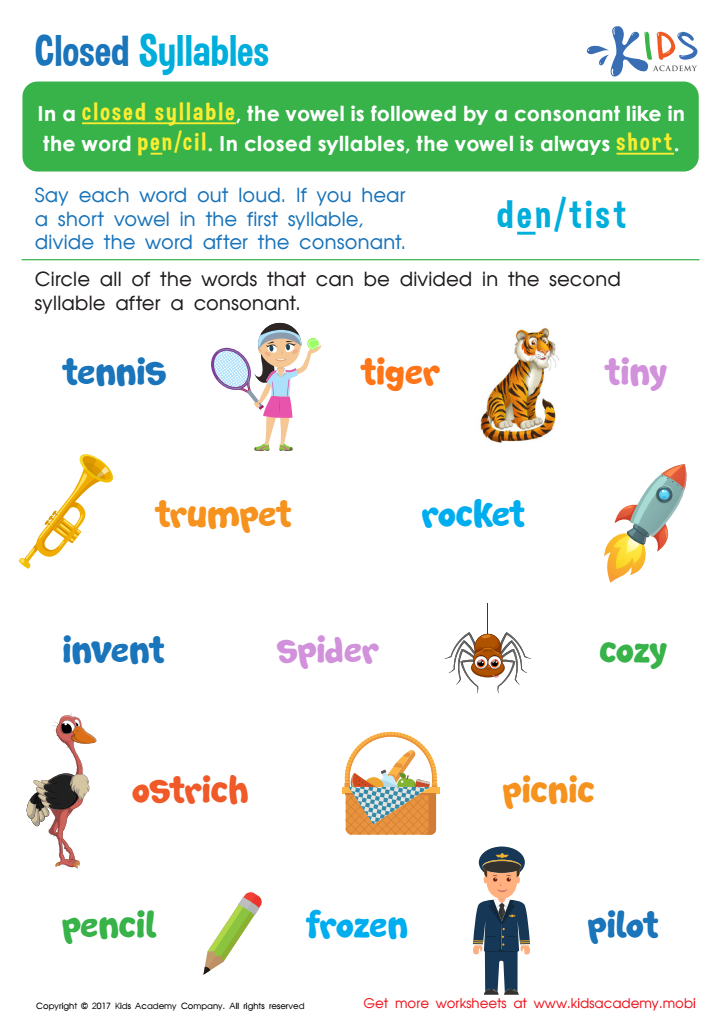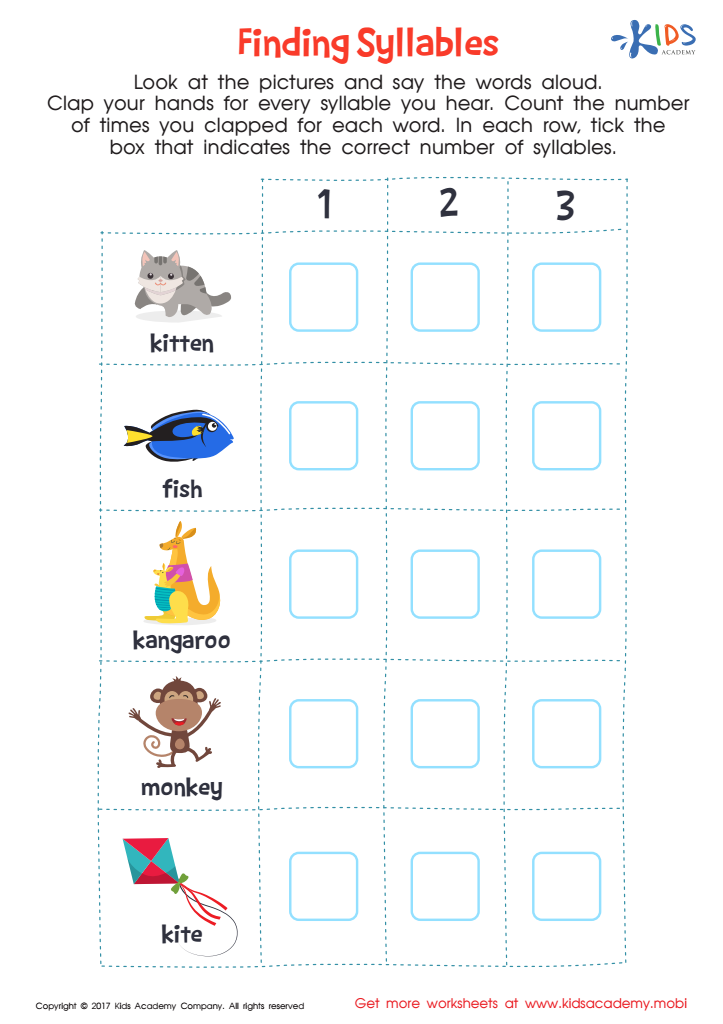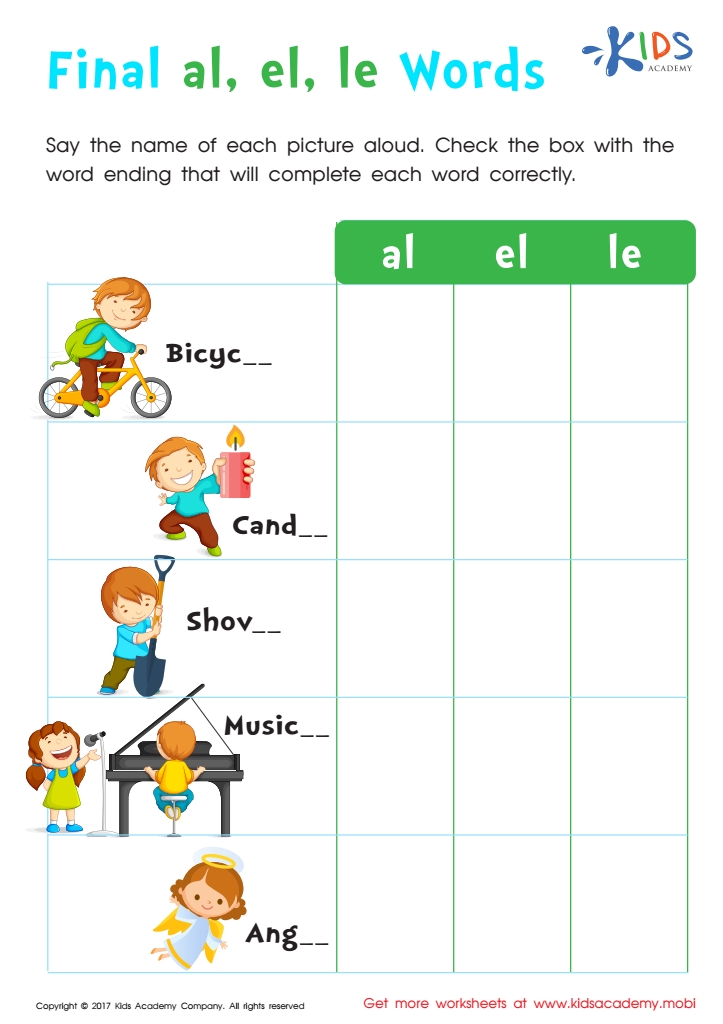Understanding syllables Writing Worksheets for Ages 3-9
3 filtered results
-
From - To
Discover our engaging "Understanding Syllables Writing Worksheets" designed for children ages 3-9. These printable worksheets support young learners in mastering syllable identification and production, a key foundation of linguistic development. Featuring fun activities, games, and colorful visuals, our resources make learning syllables enjoyable and effective. Each worksheet is tailored to different age groups, ensuring age-appropriate challenges that enhance phonemic awareness and reading skills. Ideal for classroom or home use, these worksheets provide essential practice for early readers, helping them become confident, fluent readers. Start exploring our collection and watch your child's literacy skills blossom!


Closed Syllable Spelling Worksheet


Finding Syllables Word Structure Worksheet


Spelling Words Ending with –le, –el and –al Worksheet
Understanding syllables is fundamental for children ages 3-9 because it significantly supports their language development and literacy skills. Syllables are the building blocks of words, and knowing how to segment them helps children decode and spell words more efficiently. When children can break down words into manageable parts, they are more able to recognize patterns and phonetic structures, which enhances their reading fluency.
For parents and teachers, focusing on syllable awareness provides practical benefits in guiding children through early writing stages. Understanding syllables helps children enhance their spelling because they learn to approach writing logically—dividing longer words into syllables makes the complex process of spelling more digestible.
Furthermore, syllable awareness improves vocabulary acquisition. As children become more adept at identifying syllables, they become better at pronouncing unfamiliar words and understanding their meanings. It also aids in articulation and phonological processing, strengthening overall communication skills.
By teaching syllable concepts early, parents and teachers play a vital role in laying a solid foundation for academic success. Children equipped with such skills exhibit greater confidence and motivation in their literacy journey, which translates into positive educational outcomes. Prioritizing syllable understanding is, therefore, an essential strategy in early childhood education.
 Assign to My Students
Assign to My Students














